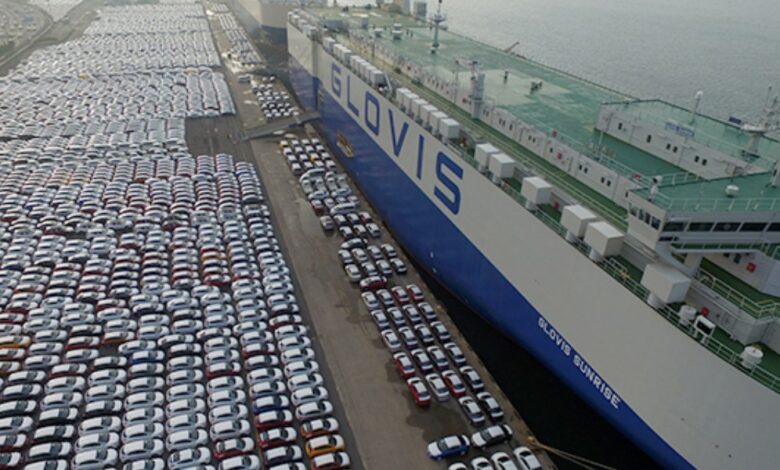Seaspan enters new sector, ordering world’s largest car carriers with Hyundai Glovis

Seaspan, the world’s largest boxship lessor, has marked its entry into the car carrier segment in partnership with South Korea’s Hyundai Glovis.
The Atlas Corporation subsidiary and the shipping and logistics unit of Hyundai Motor Group have signed up for up to ten 10,800 ceu ships at Shanghai Waigaoqiao Shipbuilding.
The deal includes six firm LNG dual-fuel vessels with options for four more units, which will be under long-term charter upon delivery and the largest under development to date.
Earlier this year, Seoul-based Hyundai Glovis revealed plans to spend around $1.84bn on a dozen 10,800 ceu vessels for delivery in 2027.
Seaspan has a fleet of around 140 containerships and nearly 50 under construction as part of the company’s 70-vessel newbuild program, which includes 25 dual-fuel ships. In addition to LNG fuel, the car carrier newbuilds will be methanol and ammonia-ready.
“This deal signifies our customers’ trust and value of Seaspan’s commitment and capability executing alternative fuel initiatives,” said Bing Chen, president and CEO of Seaspan. “By incorporating our extensive experience in dual-fuel LNG containerships while working proactively with all stakeholders during this decarbonization journey, Seaspan is uniquely poised to contribute to the standards and progress of sustainable shipping.”
“As jurisdictions seek to transition away from conventional fueled vehicles to electric vehicles, we see this as an opportunity to not only meet the current demand for sustainable shipping solutions but also support the global initiative for cleaner transportation alternatives,” added Kun Li, Seaspan’s chief commercial officer.
A shortage of car carriers, after a decade of limited orders, had lifted their value over the past year, with rates hitting record levels amid a post-pandemic rebound in car demand. This has lifted the car carrier orderbook, with owners securing slots mostly in China for supersized vessels, and even seen carmakers tapping into the container carrier sector off the back of weakened rates. The latest data shows that 80 vessels of 677,000 ceu have now been confirmed ordered in 2023, a new annual record, taking the orderbook to some 37% of fleet capacity.
Clarksons, in its most recent weekly report, described the car carrier markets as remaining “exceptionally tight” as 2023 draws to a close.
The 10,800 ceu design, which Seaspan and Hyundai Glovis have opted for, could be trumped soon. At the Marintec China trade fair this week, class society DNV awarded an approval in principle certificate to China Merchants Jinling Shipyard for an 11,000 ceu design.

We here in Beautiful British Columbia, marvel at the ongoing news stories of the large numbers of newbuild ships that the Seaspan Group of companies is continuing to place orders for with Asian shipbuilding yards, while, at the same time, bragging about their group’s shipbuilding capabilities here in BBC.
To whit … this recent local news story:
British Columbia wins when ships are built locally – Victoria Times Colonist.pdf
https://www.timescolonist.com/opinion/comment-british-columbia-wins-when-ships-are-built-locally-7902775
“Backed by a workforce of 3,900 shipbuilders, we are now a major employer and economic engine for our province and our country.” … John McCarthy … A commentary by the chief executive officer of Seaspan Shipyards.